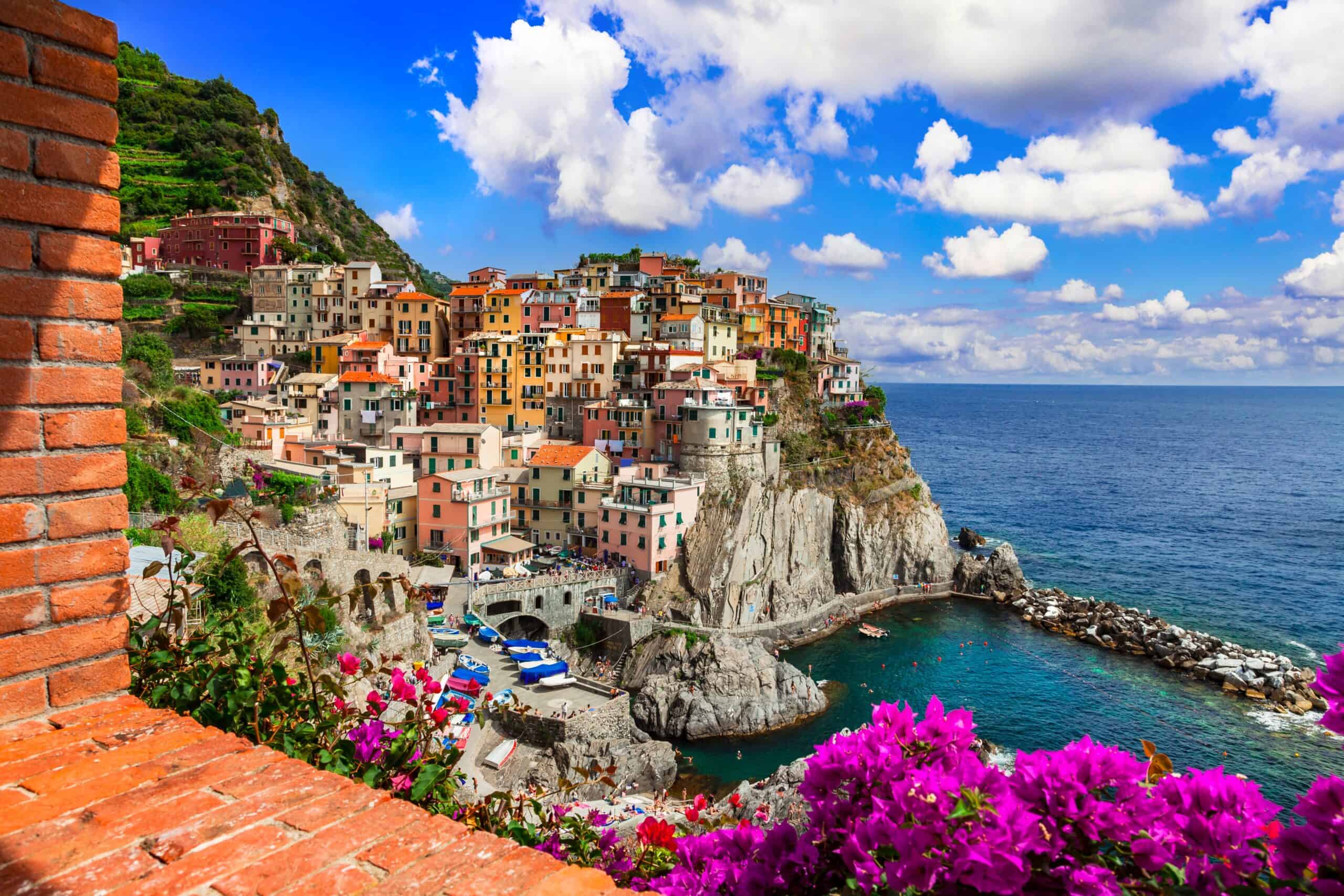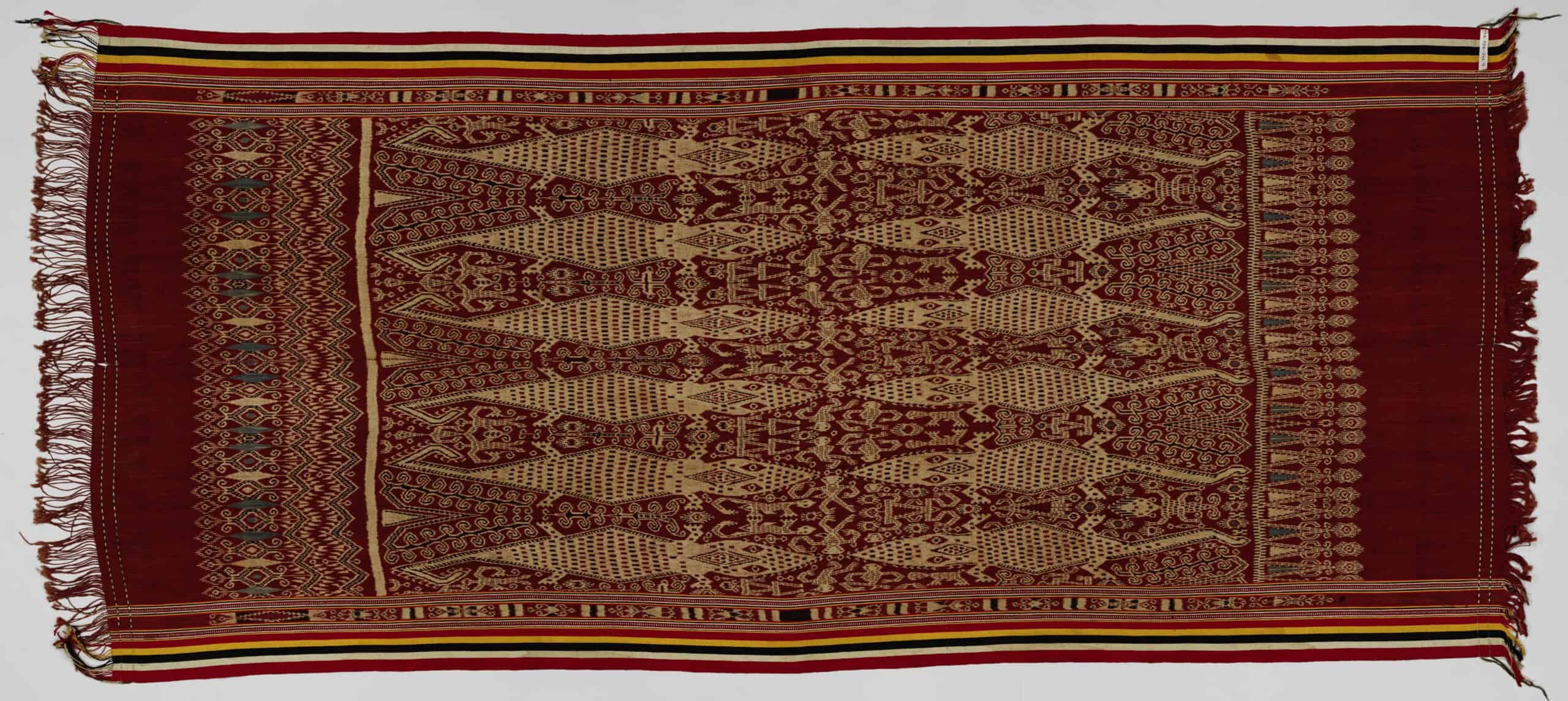The Olympic Games have produced countless moments of triumph, courage, and inspiration that have captivated audiences around the world. From record-breaking performances to acts of incredible sportsmanship, these unforgettable events have not only defined the athletes who achieved them but also shaped the history of the Games themselves. This collection highlights some of the most iconic moments in Olympic history, each one a testament to the enduring spirit of competition and the power of human perseverance.
Jesse Owens Defies Hitler’s Aryan Supremacy Theory (1936 Berlin)
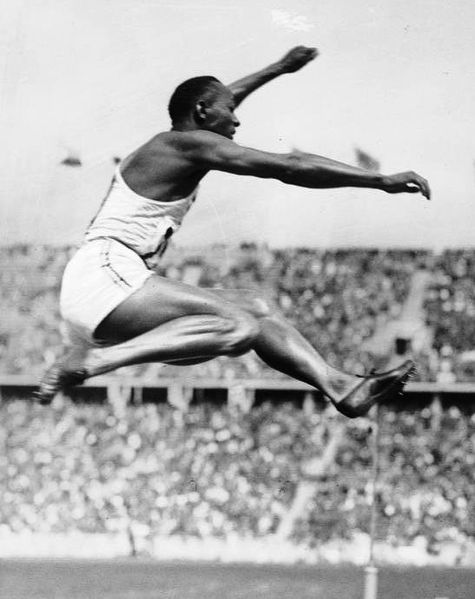
Jesse Owens, an African-American athlete, won four gold medals at the 1936 Berlin Olympics, challenging Hitler’s ideology of Aryan supremacy. His victories in the 100 meters, 200 meters, long jump, and 4×100 meters relay stunned the world. Owens’ performance was a powerful statement against racism, as he triumphed in front of the Nazi regime. Despite the tense political atmosphere, Owens’ grace and determination captured the spirit of the Olympics. His legacy continues to inspire athletes and stands as a beacon of equality.
Nadia Comaneci Scores the First Perfect 10 (1976 Montreal)
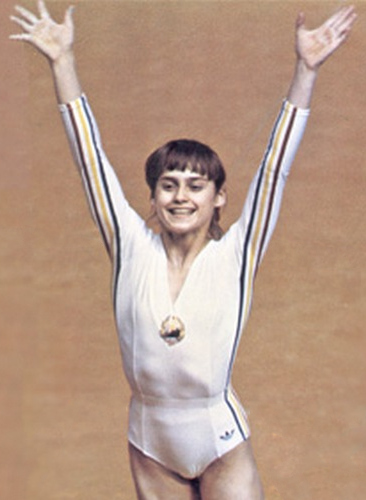
At the 1976 Montreal Olympics, Romanian gymnast Nadia Comaneci made history by scoring the first-ever perfect 10.0 in Olympic gymnastics. Her flawless routine on the uneven bars left the judges and the audience in awe. Comaneci’s achievement broke barriers in the sport, showing the world the heights that could be reached in gymnastics. This moment catapulted her into international stardom and set new standards for future gymnasts. Nadia’s legacy remains a milestone in Olympic history.
Bob Beamon’s Record-Breaking Long Jump (1968 Mexico City)
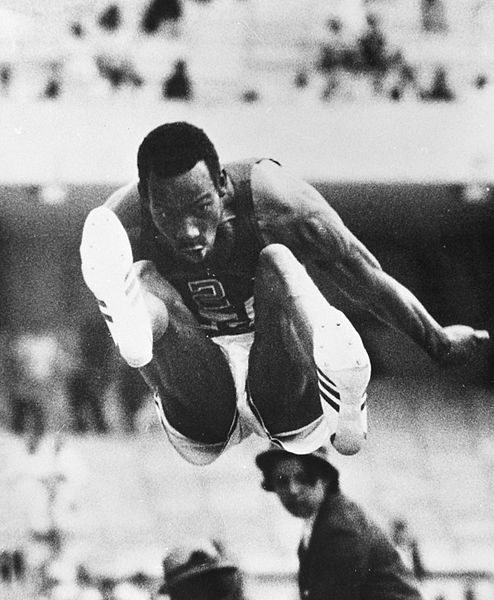
Bob Beamon shocked the world with his record-breaking long jump at the 1968 Mexico City Olympics. Leaping an astonishing 8.90 meters, Beamon shattered the previous world record by 55 centimeters. His jump was so far ahead of its time that it took 23 years for the record to be broken. Beamon’s achievement, often referred to as “The Jump of the Century,” was a defining moment in Olympic athletics. The image of him collapsing in disbelief remains iconic.
Mark Spitz Wins Seven Gold Medals (1972 Munich)
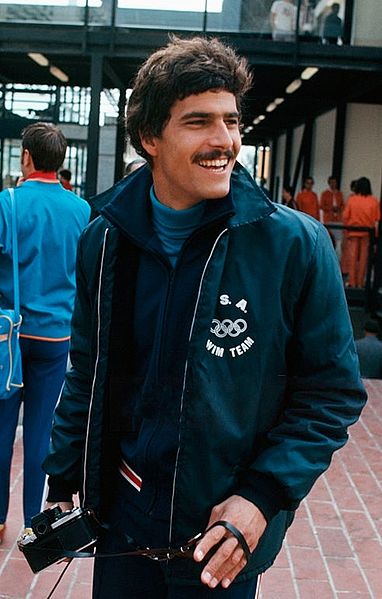
American swimmer Mark Spitz became a legend at the 1972 Munich Olympics by winning seven gold medals, all in world-record time. His dominance in the pool set a new standard for excellence in swimming. Spitz’s achievement remained unmatched for decades, and his image with seven gold medals around his neck became iconic. His performance was a beacon of American sporting prowess during a tense period of the Cold War. Spitz’s record stood until Michael Phelps surpassed it in 2008.
Usain Bolt Breaks 100m and 200m Records (2008 Beijing)
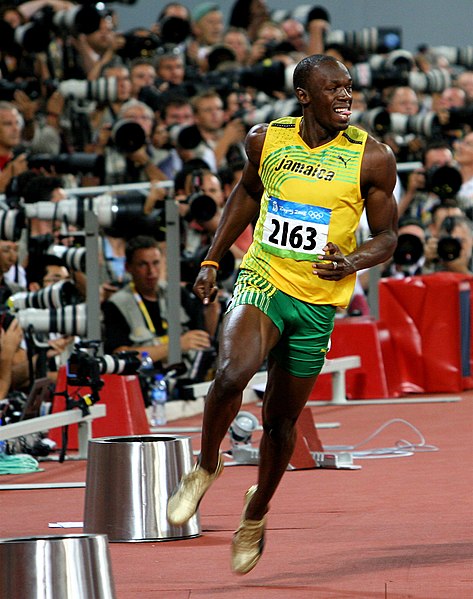
Jamaican sprinter Usain Bolt electrified the 2008 Beijing Olympics by breaking the world records in both the 100m and 200m events. His relaxed demeanor and unprecedented speed captured the attention of millions. Bolt’s 9.69-second finish in the 100m, with shoelaces untied, was particularly iconic. His performances not only redefined sprinting but also made him a global superstar. Bolt’s legacy as the fastest man alive began in Beijing, setting the stage for his continued dominance in future Games.
Cathy Freeman Wins Gold for Australia (2000 Sydney)
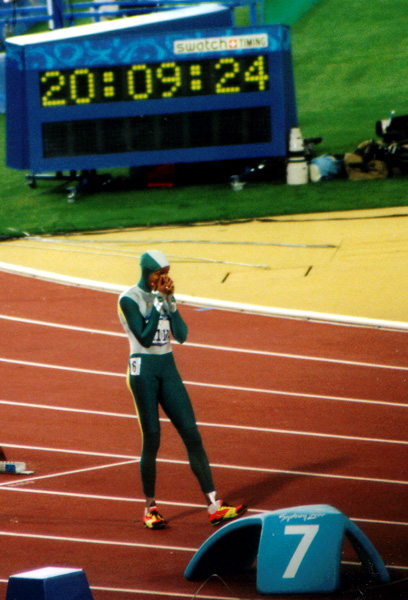
Cathy Freeman’s victory in the 400 meters at the 2000 Sydney Olympics was more than just a race; it was a moment of national unity and reconciliation. As an Indigenous Australian, Freeman carried the weight of her people’s hopes on her shoulders. Her gold-medal run, while wearing a full-body suit, became a symbol of Australia’s journey toward embracing its Indigenous heritage. The sight of Freeman carrying both the Australian and Aboriginal flags during her victory lap resonated deeply. Her triumph is celebrated as one of the most significant moments in Australian sporting history.
Abebe Bikila Wins Marathon Barefoot (1960 Rome)
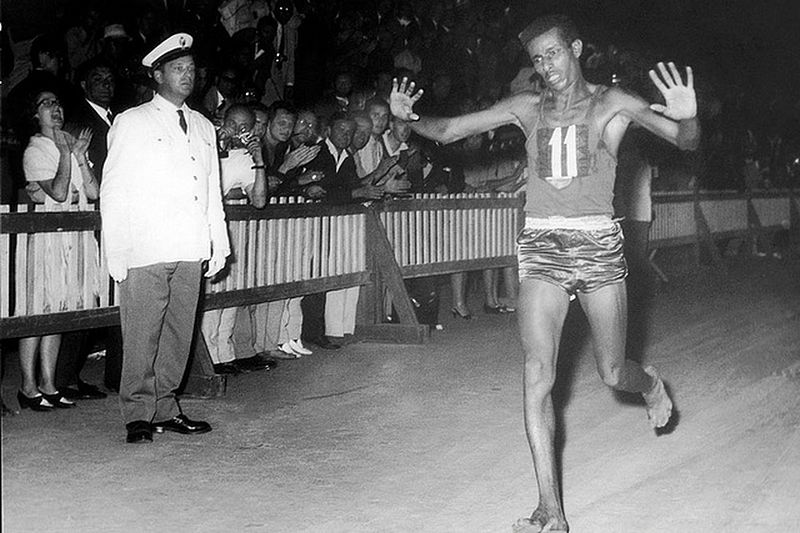
Ethiopian runner Abebe Bikila made history at the 1960 Rome Olympics by winning the marathon while running barefoot. His victory was the first Olympic gold for an African athlete, and it signaled the rise of African distance runners on the world stage. Bikila’s effortless running style and determination left a lasting impression. Four years later, he would win the marathon again, this time wearing shoes, solidifying his place as one of the greatest marathoners of all time. Bikila’s barefoot run remains an enduring symbol of triumph over adversity.
Michael Phelps’ Eight Gold Medals (2008 Beijing)
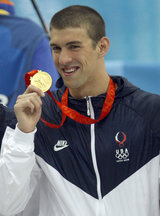
Michael Phelps etched his name in the record books at the 2008 Beijing Olympics by winning eight gold medals, surpassing Mark Spitz’s record of seven. Each of Phelps’ victories showcased his versatility and dominance across various swimming disciplines. His extraordinary achievement was capped by a dramatic finish in the 100m butterfly, where he won by just 0.01 seconds. Phelps’ performance in Beijing solidified his status as the greatest Olympian of all time. His legacy continues to inspire swimmers worldwide.
Florence Griffith-Joyner’s Record-Breaking Sprints (1988 Seoul)
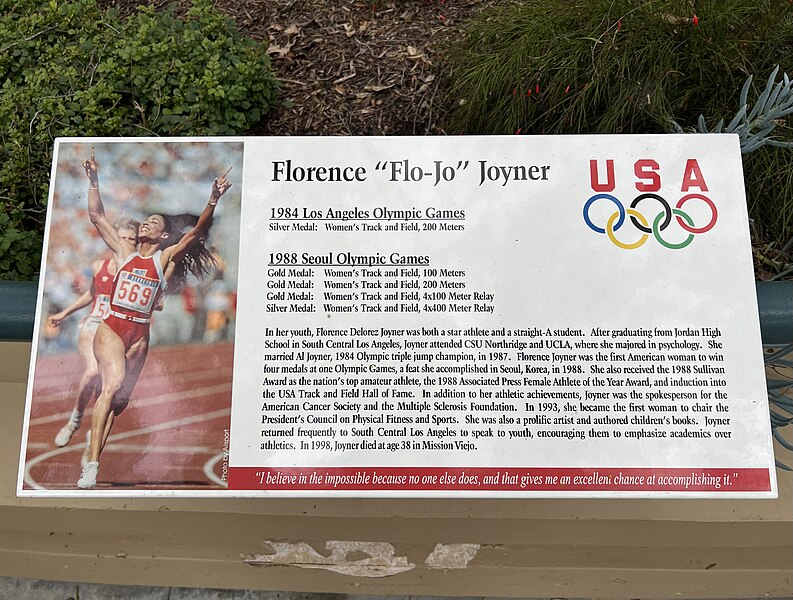
Florence Griffith-Joyner, known as “Flo-Jo,” dazzled the 1988 Seoul Olympics with her record-breaking performances in the 100m and 200m sprints. Her 10.49 seconds in the 100m and 21.34 seconds in the 200m remain unbeaten to this day. Flo-Jo’s distinctive style, with her one-legged bodysuit and flowing hair, made her a global icon. Her speed, combined with her flamboyant personality, captivated audiences and made her one of the most memorable athletes of the Games. Flo-Jo’s records are a testament to her extraordinary talent and enduring influence in track and field.
The Black Power Salute (1968 Mexico City)
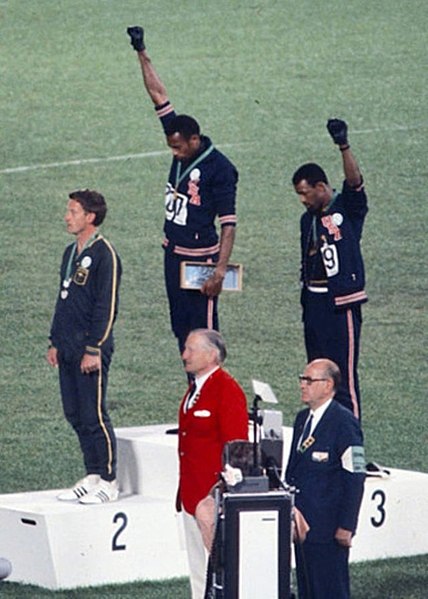
During the medal ceremony for the 200m at the 1968 Mexico City Olympics, American athletes Tommie Smith and John Carlos raised their fists in a Black Power salute. The gesture, made during the U.S. national anthem, was a powerful statement against racial inequality and civil rights injustices. The act of protest was met with widespread controversy and led to their expulsion from the Games. However, the image of the two athletes with their fists raised remains one of the most iconic and enduring symbols of resistance in Olympic history. Their courage in using the Olympic stage to advocate for social justice continues to resonate today.
Kerri Strug’s Heroic Vault (1996 Atlanta)
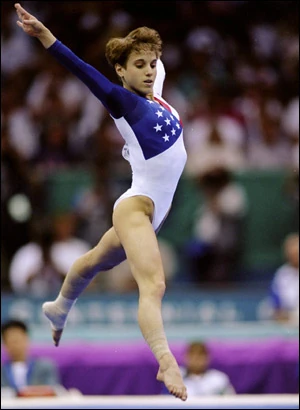
Kerri Strug secured the gold medal for the U.S. women’s gymnastics team at the 1996 Atlanta Olympics with a courageous performance on the vault. After injuring her ankle on her first attempt, Strug pushed through the pain to complete a second vault, landing on one foot. Her determination and resilience ensured the first-ever team gold for the U.S. women’s gymnastics team. Strug’s emotional moment, as she was carried off the floor by her coach, became one of the most memorable and inspiring moments of the Games. It exemplified the spirit of perseverance and teamwork.
This article originally appeared on Rarest.org.
More From Rarest.Org
When it comes to luxury dining, some restaurants elevate the experience to an art form. These establishments are known for their exquisite cuisine, opulent settings, and impeccable service. Read more.
The Mediterranean coast is filled with picturesque corners that blend history, culture, and natural beauty. Each spot offers its unique charm, from vibrant seaside villages to serene coastal towns. Read more.
Textile art practices around the world are as diverse as the cultures that create them. Some are ancient, passed down through generations, while others are unique to specific regions or communities. Read more.


